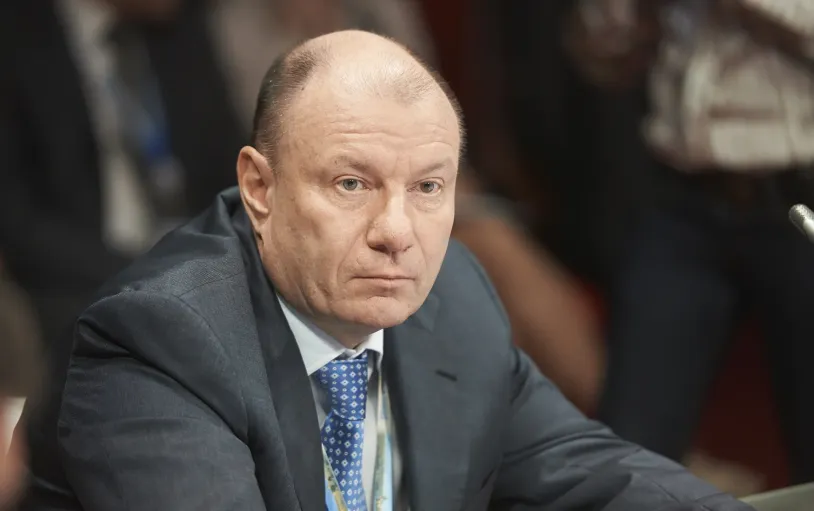Potanin started testing a blockchain platform for metal trading
“Nornickel began testing a platform for trading tokens backed by metal. According to the company’s co-owner Vladimir Potanin, the official launch of the project may take place abroad because Russia has not yet adopted a law on digital financial assets
“Norilsk Nickel, the world’s largest producer of palladium and refined nickel, has begun testing a digital platform for trading tokens backed by the metal. It was announced by the president of the company, billionaire Vladimir Potanin # 2 in an interview with Bloomberg. According to him, Nornickel’s clients – Trafigura Group, Traxys and Umicore – participated in the testing. Trafigura and Traxys confirmed this.
Digitalization helps simplify the trading process and reduce costs, the agency said: on a digital platform, clients can buy tokens backed by real assets – in this case, metals – and then exchange them for physical stocks. If a customer suddenly realizes they don’t need all of the contracted volume, they can easily sell the excess to someone else using tokens, rather than entering into potentially complicated negotiations with the supplier.
“We’re just packaging accepted business relationships in a new and modern form,” Potanin explained.
“Nornickel first announced plans to issue tokens a year ago. Later, Potanin invested in developing a blockchain platform based on Hyperledger Fabric and backed by IBM, Bloomberg wrote. As the agency notes, Potanin wants Nornickel to become the first major mining company to use tokens in metal trading. According to the billionaire, the digital platform will be able to buy tokens not only for palladium, but for all metals that Nornickel produces. The company expects that in a few years tokens will account for up to 20% of all sales. Potanin estimated his investment in digitalization at approximately $100 million.
Nornickel plans to announce details about the official launch of the digital platform in the spring of 2020. According to Potanin, the launch may take place in the United States, UAE, Switzerland or Singapore because Russia has not yet adopted a law on digital financial assets. Last spring, Potanin told Bloomberg that he hoped the law would pass in the summer of 2019 so he could launch before the end of the year. Before that, in an interview with Kommersant in October 2018, the businessman noted that he “would be more comfortable doing these projects in Russia.” “But if it doesn’t work out, I can do it elsewhere,” Potanin said.
Now he still hopes that the adoption of the law in Russia will accelerate. In November, the Russian Union of Industrialists and Entrepreneurs (RSPP), which represents the interests of Russia’s largest businesses, made such a request to President Vladimir Putin. “Faster adoption of this law will create certain advantages for the country. Russia can become a digital leader,” Potanin believes.

